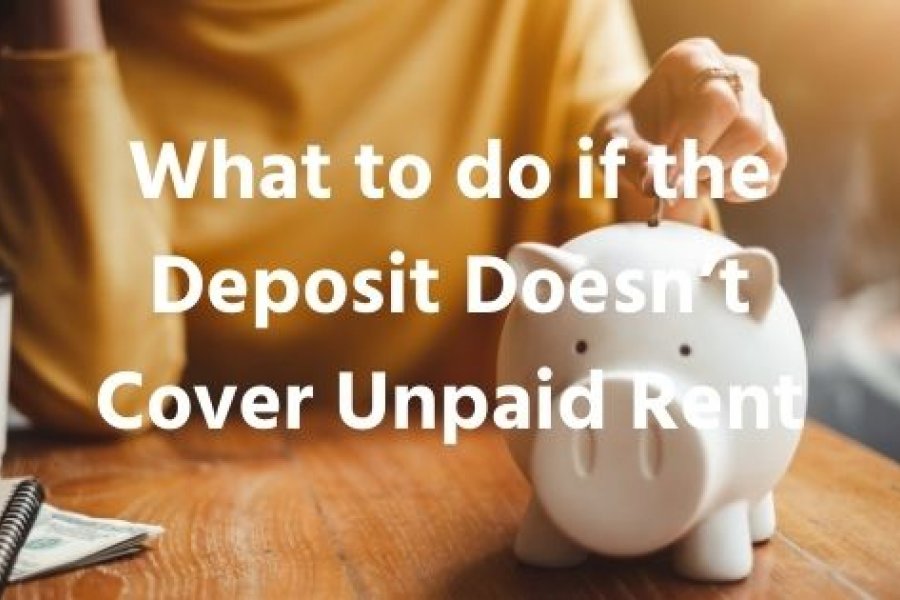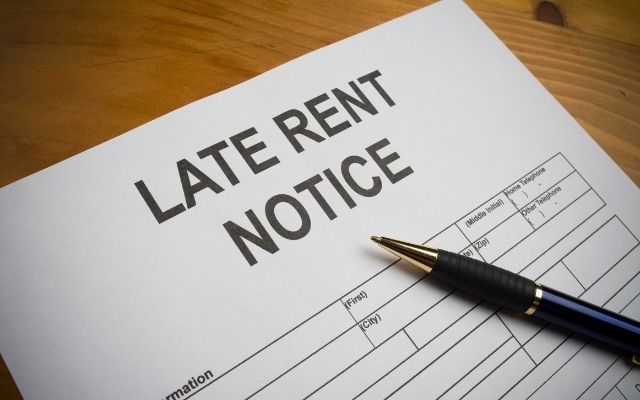
Landlords are exposed to the risk of losses in terms of unpaid rent and property damage. That's why security deposits are collected to protect them from absorbing so much of the costs of non-payment and property repairs. Some renters can flee and avoid their responsibilities when they move out. In this case, a security deposit helps cushion the potential financial losses and prevent such as situation.
If you encounter this scenario, what is the best action when the deposit given is insufficient to pay for unpaid rent? Security deposits are not supposed to be used to cover unpaid rent but this can occur. Here are some steps to take when faced with this dilemma:
1. Talk to the renter.
Communicating with the tenant lets you see the other side. You can find out the tenants' reasons for failing to pay rent and open yourself to a negotiation. You can also send the tenants an itemized list of deductions from the security deposit. The purpose is to let them understand the details of the non-refund of the security deposit. It's also best to include an attachment of other payment due to you.
Be specific when sending the tenant a document of the expenses such as property damage repairs. In this case, you also need to know about the Security Deposit law in North Carolina to follow the regulations properly.
2. Write a demand letter.
If you can't get hold of the tenant, then it's best to send a demand letter. Include all details such as the payment due date and contact information. When composing the demand letter, be careful about the tone you're using. Any harsh words will only put the tenant in a defensive state.

Being open to a conversation creates an atmosphere of understanding. You can then discuss the best way to recover the additional payment. Any action that may possibly embarrass a tenant may lead to being unable to collect the unpaid amount. As much as possible, be tactful when handling this kind of situation.
3. Head to the small claims court.
If attempts to reach out to the tenant have been ignored and the demand letter didn't get any response, you can choose to settle the issue in a legal way. This requires effort and time and you also need to provide evidence to the civil court.
Be warned beforehand that taking the matter to court does not mean you'll be able to collect the payment. Remember that the following reasons may make it difficult for you to accomplish your goal to collect the payment:
-
Time factor - You'll be gathering proof and scheduling time in between to head to the court. If you're living far away then it can be a time-consuming activity.
-
Money factor - You might not get refunded with your legal fees especially if the amount is small. This can be costly to file for you.
-
Counter lawsuit - The tenant might have a valid legal case against you. If you've performed a forced eviction then the court might side with the tenant's case.
-
Lack of resources - The tenant might have nothing to pay you at all so there's not much you can do to collect the unpaid rent.
4. Engage the services of a collection agency.
If you're busy, you can also choose to hire a third party collector. For an agreed fee, they can help pursue collection. Some will practice a percentage commission while others have a flat fee.

Since rent recovery is the specialty of collection agencies, they can be more successful in chasing after a delinquent tenant. The important thing is to pick a reputable one to avoid legal hassles.
Ways to Prevent Loss Due to Non-payment
Landlords can protect themselves from experiencing loss caused by non-payment of rent or excessive property damage. They can start by applying the following:
1. Conduct effective tenant screening.
You must be able to vet your prospects well. Do they have a stable source of income? Are they making at least 3x as much as the monthly rental rate?
Get to know them by reviewing their track record. Look at the rent history and contact references.
Some landlords think that it's a waste of time and a hassle to conduct tenant background screening. However, it always pays to screen your tenants so you won't be left dealing with violations and non-payment of rent. This step will aid you in accumulating solid returns for your real estate investment.
2. Be alert in sending notices for payment.
Enforcing rules especially with payment ensures your rental business will always be profitable. If there are delays in rent payment, maybe you'll wait out the grace period. Or maybe you implement a late fee policy. Beyond a reasonable period past the due date, it's best to send a quit notice if the tenant has not reached out to communicate.

Ground rules must be set and put in writing in your leasing agreement. It creates a guideline for tenant expectations and consequences. If you're lax about sending the notices then the tenants won't be encouraged to pay on time. That said, always follow North Carolina state laws when it comes to the required number of days to send the notice for eviction.
3. Perform regular inspections.
To help you manage your losses, it's good practice to conduct regular property inspections. You can observe how the tenants are taking good care of the property. You can also spot damages early on that you can immediately fix before it gets too costly.
Before a tenant leaves, you can exercise a walkthrough procedure. The purpose is to spark awareness for you and the tenant regarding the condition of the rental property. You can determine and assess damages prior to the move out. The tenant also gets a chance to fix things to regain a full refund of the security deposit.
Bottom Line
Before potential losses rear its head, be an assertive landlord. Focus on having an effective screening method so you won't be faced with an uncertain situation of dealing with an uncollected rent amount. If you need a property manager to support you in this kind of responsibility, contact Schambs Property Management today.